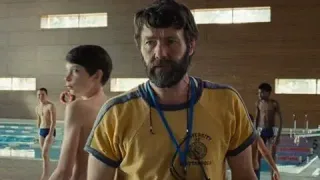February 1, 2022
Edmund White Faces the Future in 'A Previous Life'
Timothy Pfaff READ TIME: 5 MIN.
With the publication of his latest novel, A Previous Life (Bloomsbury), Edmund White joins the ranks of the great prolific artists who end their careers on a note of high ribaldry.
Examples abound in all genres, but an ideal one is Gioachino Rossini, who capped a lifetime of brilliant opera composition that today would earn him the honorific of "influencer" with a suite of piano pieces, Sins of My Old Age, that reveled in his undiminished musical genius, just more intimately.
Before they're kidnapped in a metafictional heist, the main story lines of A Previous Life are everything a long-term White reader could want. Looking back on their lives before they met and were married, Sicilian Ruggero and American Constance decide to tell each other all in written tales they will read aloud to one another, once, before destroying the manuscripts. Both are convinced their previous relationships were ruined by their disclosing too much of themselves along the way.
There's no lack of seriousness in their accounts of their previous lives, and the reactions of each to the revelations of the other only confirm the problems that would have arisen had they revealed some of their secrets. But, seemingly freed of the constraints of futurity, both recall their past loves and liaisons with relish. The prose has an untiring energy. Chaucer and Boccaccio at their raciest didn't spin better yarns.
Predictably enough, Constance's history boasts the most scars, though her relish for the younger, fitter body of her successor husband, Jason, is as palpable as it is genuine.
Ruggero's seems tarnished most of all by his worries that his partners, or the future, will think ill of him. A standout among his relationship misfires is fellow musician and dedicated amazon Brunnhilde. But, cumulatively, his stories, bisexual in nature as they insist on being, seem like prolegomena (he's a philosopher as well as harpsichordist) to a career as gay top.
You forgive them both everything for the privilege of being drawn into their confidences. Their vivid language –White's, of course– is the reward. Constance admits to "faulty dykedar," and White calls Brunnhilde's preference for being on bended knee or on the floor the better to perform fellatio, "staying in the cockpit."
As ever, White's sex-drenched prose is his strongest refutation of Ruggero/White's comment that "All writing (even thinking-in-words) about sex sounds as if it's going for the Bad Sex Award."
Writerly Reflections
Both narrators are writers or wannabes, and their world allows time for writerly reflections on the nature of fiction itself. "The only problem with reading fiction," White gives it to Ruggero to say, "is that it doesn't prepare us for the opacity of real life nor its tedium. The thrill of fiction is that it gives us the illusion that life is legible, character integral, cause and effect logical, love central, and the pace breakneck."
Like his creator, Ruggero is obsessed with how he will be remembered by history, even if the regular allusions to his big, dark, thick Sicilian dick, a "two-hander," make it clear that he won't mind being remembered for his most prominent physical feature, too. One of his worries quickly becomes a wary reader's chief concern: "What he fears most is that he'll be remembered chiefly as the man who ruined Edmund White's life."
White holds off as long as he can, but it's when his metafictional counterpart takes over the novel that things go south. We hear about his tiny penis as often as we're reminded of Ruggero's big schlong, and the descriptions of White's morbid obesity run to the pornographic. The central concern, however, is that White had been "careless to grow so old."
The loss of a redemptive beauty, or the deeper fear that he never had it, is his great obsession, which makes all of his attempts at relationship ultimately grotesque in their clinginess. By the time Ruggero does leave him, the surgical cleanness of the amputation seems laudable in itself.
Big Biography
Narrative lines become hopelessly entangled. Constance gets involved with another, straight writer's "big biography" of White – the real White being one of the great big biographers of our time – unable to resist the requests that she fill in the blanks surrounding the dissolution of White's relationship with Ruggero. The real-life White's telltale name-dropping picks up steam, as he expresses his anxiety that David Sedaris will be better remembered, or "Garth What's his name." There is even an abbreviated overview of White's fiction, but the character White's harsh summary judgment is that White is "the forgotten gay novelist of the twentieth century."
What never works is author White's overlay of the metafictional future. From the start he tries to get us to buy that Constance and Ruggero begin their reminiscences in the year 2050, but nothing about that future seems much different from our present. It's post-pandemic, but COVID is named. Gay liberation is said to be a bygone concern, but it's left unclear whether that's a good or bad thing, if either.
If, like me, you owe an unquantifiable debt to the real-life White, and you want to leave your memories intact, it's up to you where you stop reading this increasingly oppressive book. The arid realization that he may want to be remembered most as good sex is suffocating, and there's only pale consolation in Ruggero's claim: "Lots of people were good sex, a very few of them lovable, most of them hateful or boring. To Edmund being good sex was neither a necessary nor sufficient condition for being lovable, though God knew it helped."
In addition to naming it "A Previous Life," White's chilling subtitle for the book is "Another Posthumous Novel." At least for now, his legacy is in the hands and minds of the reader.
(Watch White's Jan. 25 conversation about "A Previous Life" with Bill Goldstein at paulacoopergallery-studio.com)
A Previous Life by Edmund White, Bloomsbury Publishing. $26. www.bloomsbury.com
Help keep the Bay Area Reporter going in these tough times. To support local, independent, LGBTQ journalism, consider becoming a BAR member.






